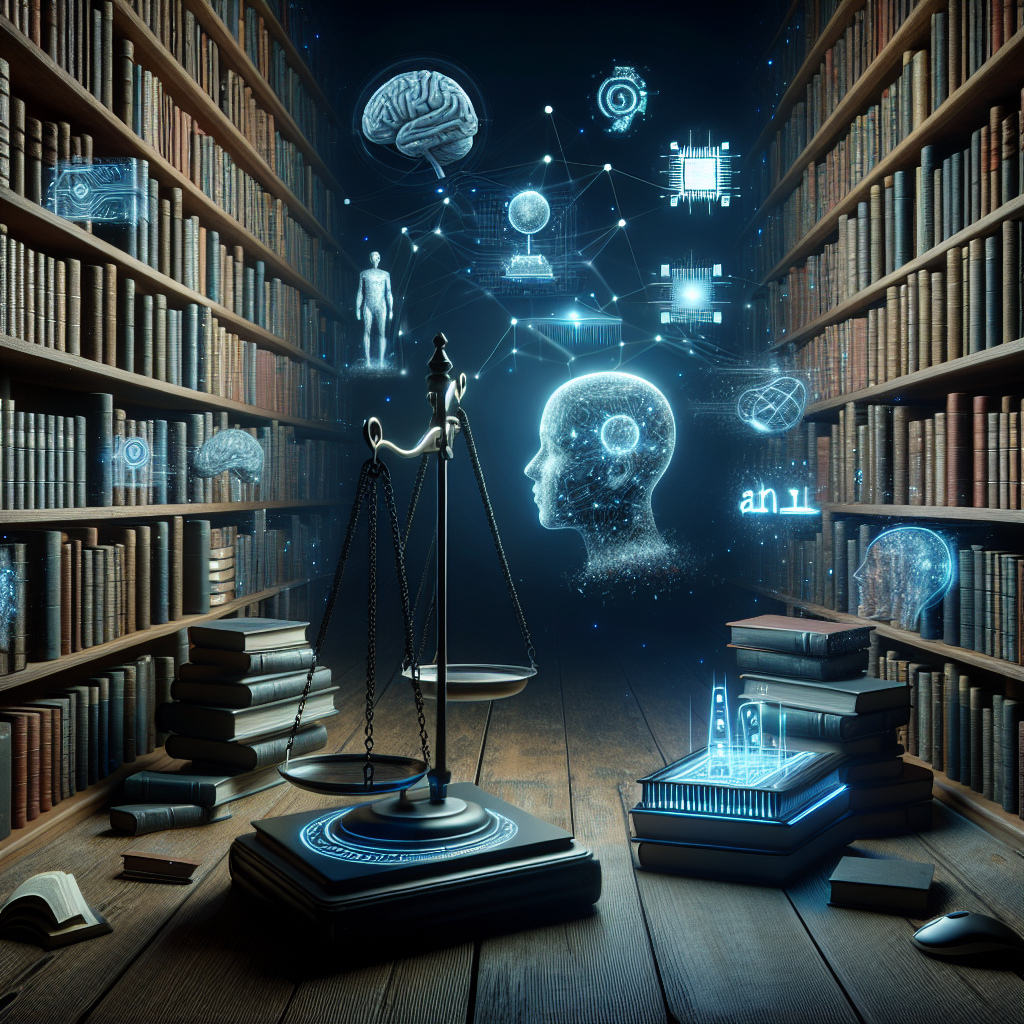Are There Things We Must Not Know? A Dive into AI and Forbidden Knowledge
Hey there, tech enthusiasts! Have you ever wondered if there are certain things we are better off not knowing? It’s an age-old question, and in today’s world of rapid technological advancements, it feels more relevant than ever. Let’s chat about a fascinating concept: forbidden knowledge, and how it intersects with the realm of Artificial Intelligence (AI).
The Classic Conundrum
Picture this: you’re in the Garden of Eden, apple in hand, pondering whether taking a bite is worth the possible consequences. History and mythology are rife with examples where pursuit of knowledge has led to dire outcomes. Fast forward to our modern age, and we’re dealing with the atomic bomb—a clear example where knowledge had both revolutionary and devastating consequences.
But what about AI? Could this revolutionary field harbor its own breed of forbidden knowledge?
The AI Conundrum
AI has the potential to transform our world in ways we can’t yet imagine. From self-driving cars to intelligent personal assistants like Siri and Alexa, AI is stepping into roles previously filled by humans. But with great power comes great responsibility, right? There’s growing concern about the potential for AI to cross into the realm of forbidden knowledge.
Take true self-driving cars, for instance. These are vehicles that drive entirely on their own, without any human intervention. They’re categorized as Level 4 and Level 5 autonomy. In contrast, the cars that require human co-driving assistance fall under Level 2 or Level 3 and come equipped with Advanced Driver-Assistance Systems (ADAS).
We’ve been gradually seeing more and more self-driving technology being tested on public roads. But before you let your guard down, there’s an important point to note: AI systems are not sentient, and they definitely don’t have human-like reasoning or “common sense.” Yet, people sometimes anthropomorphize AI, assigning it human-like qualities it doesn’t possess. It’s crucial to remember this as we dive deeper.
The Dilemma of Forbidden Knowledge in AI
At present, there doesn’t seem to be any form of knowledge in AI development that we’d classify as forbidden. But the future? That’s a different story. Currently, our major push is towards achieving Level 4 self-driving cars, with the hope of eventually reaching Level 5. However, there’s a school of thought suggesting we’ll need a groundbreaking new approach to get there—one that might uncover unknown facets of human cognition and common-sense reasoning.
Here’s where it gets slippery. Common-sense reasoning, something we humans take for granted, remains a tough nut to crack for AI. We use it effortlessly when driving, making decisions, or solving problems. But AI? Not so much. Most attempts at embedding AI with common-sense reasoning have led to modest strides at best.
Some experts argue that the breakthrough required to achieve Level 5 autonomy might inherently involve discovering knowledge that could be potentially perilous, even forbidden. The cognitive mechanisms underlying our common sense could, in theory, contain elements we might deem too dangerous or ethically fraught to explore or replicate in machines.
The Ethical Tightrope
This leads us to a broader discussion on AI ethics. Developers and stakeholders in AI are under increasing pressure to account for ethical considerations. Bias in AI, for instance, has already demonstrated how technology intended for good can go awry. Ethical dilemmas abound, especially in developing self-driving cars, where the consequences can literally be a matter of life and death.
For example, the AI driving system in a true self-driving car will drive entirely on its own. There are no provisions for a human driver, making ethical decision-making by the AI system critically important. Now, imagine if the knowledge enabling such decision-making were based on something ethically murky or fundamentally dangerous.
Round and Round We Go
It’s a bit of a catch-22, isn’t it? If we don’t pursue this knowledge, someone else might. And if we do, we might open Pandora’s box. The challenge lies in finding a balance between innovation and caution, between power and responsibility.
It’s clear that the AI community is divided. Some argue that pursuing AI doesn’t involve any form of forbidden knowledge, at least not yet. Others caution that future breakthroughs, particularly those related to common-sense reasoning or cognitive emulation, might cross this line.
So what’s the take-home message here? Knowledge is powerful, and its pursuit often entails risks. As we tread down the path of AI and other groundbreaking technologies, we need to be mindful of the ethical, social, and potentially existential implications.
Engage with Us!
What are your thoughts on this? Do you believe there are realms of knowledge we should steer clear of, especially in AI? I’d love to hear your opinions. Drop a comment below and let’s get this conversation rolling!
